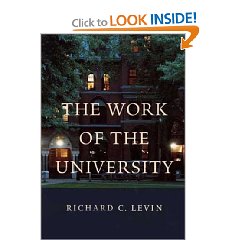 Articulate, Intelligent, Relevant, June 5, 2009
Articulate, Intelligent, Relevant, June 5, 2009
Mark R. Levin
This is a fast read being double-spaced, but it has good endnotes and a logical structure with amply documented points.
A call to arms, the book ends with ten elements of a conservative manifesto, and I will list them here:
01 Taxation
02 Environment
03 Judges
04 The Administrative State
05 Government Education
06 Immigration
07 Entitlements
08 Foreign Policy and Security
09 Faith
10 The Constitution
Here are some of my notes, but I will not summarize this book, it deserves to be read in its entirety. It joins a robust literature that is emerging in which both fiscal conservatives and social liberals are beginning to realize that since at least Jimmy Carter, the two political parties have been fielding “fronts” for what I call the Borg–the Wall Street driven two-party monopoly that has betrayed the public trust for decades now.
+ Principles matter, the Constitution matters.
+ The conventional wisdom of the elites, both in the universities and the political parties, is not as good as the common sense of the people. He cited William Buckley in saying that the first 2000 people in the Boston phone book are a better bet than the 2000 academics at Harvard.
+ Federalism has created an Administrative State that not only costs the taxpayer billions of dollars, but that imposes additional costs at the local level and has become a fourth branch of government.
+ He spends time defining and discussing the “Statist” as the enemy of the individual, equates the Statist and Secularist to the one world order crowd (the trilateralists,but I do not recall seeing that exact term in the book), the crowd that wishes to subordinate US citizens to a concept of global citizenship.
+ He is very hard on Cass Sunstein, one of two really well known public advocacy lawyers (the other being Lawrence Lessig), and discusses Sunstein in the context of Roosevelt's Second Bill of Rights which sought to create a permanent welfare state.
+ He spends multiple pages on four events that began under the Clinton Administration and led to the economic meltdown, but his overview is facile and leaves out much of what TIME Magazine provided in its “25 People to Blame” story and he appears to very deliberately ignore the fact that Senator Phil Gramm (R-TX) is the government culprit of note, accepting 200 pages from lobbyists for insertion into a bill five minutes before the vote, while also ignoring the fact that it is the consistent lack of integrity on the Hill that has destroyed this country and allowed executive and judicial manfeasance to run amok.
+ I totally agree with his interpretation of the Fourth Amendment and believe that citizenship should not be granted to babies delivered on US soil to visiting foreigners or to illegal aliens.
+ His emphasis on the importance of the consent of the governed to the very expensive liberalization of immigration as well as welfare is valuable and with his legal background, I now consider his one of the voices that must be at the table as we navigate our way into a future that bodes ill for individual rights.
+ The chapter on the environment is one of the longest, and provides an excellent overview of conservative concerns while also doing some fact checking and fallacy exposing that is both fun and educational. As I write this, a story is breaking in which the global warming crowd is taking a big hit from NASA as proof that it is the sun's cycles, not just our own behavior, that is the primary cause of global warming this time around.
+ The author writes about Social Security as a regressive tax that is also a piggy bank for unchecked federal spending and not being managed as it should be for the future.
+ I find his comments on how Republican Hoover set up Roosevelt, and how Republican Bush set up Obama, most interesting. I've come to the conclusion that the two existing parties have both sold out to Wall Street and betrayed the public trust, and the time has come to flush Congress down the toilet and start over with Independents (real ones, not neo-cons like Lieberman that change parties for convenience).
+ He writes of the importance of faith as a balancing factor on science, I agree, this is true regardless of one's ideological persuasion, and all the more so if one can eschew partisan blinders.
Other books that I recommend, with the general observation that the federal government has now become ignorant, and that decisions are being made on the basis of ideologically-defined and financially-motivated views, not on the basis of real facts openly aired:
Breach of Trust: How Washington Turns Outsiders Into Insiders
Running on Empty: How the Democratic and Republican Parties Are Bankrupting Our Future and What Americans Can Do About It
The Bush Tragedy
Vice: Dick Cheney and the Hijacking of the American Presidency
Obama: The Postmodern Coup – Making of a Manchurian Candidate
The Soul of Capitalism: Opening Paths to a Moral Economy
The Battle for the Soul of Capitalism
The Republican War on Science
The Left Hand of God: Taking Back Our Country from the Religious Right
I have posted an annotated bibliography of over 500 non-fiction books at oss.net/PIG (add the www), all leading back to Amazon, and hope that readers of this book will explore more broadly. The US Government is disconnected from reality, and the taxpayer dollar is disconnected from the public interest. It's time we put We the People back into government and I do not see that happening under the current Borg Administration — the Sequel.



